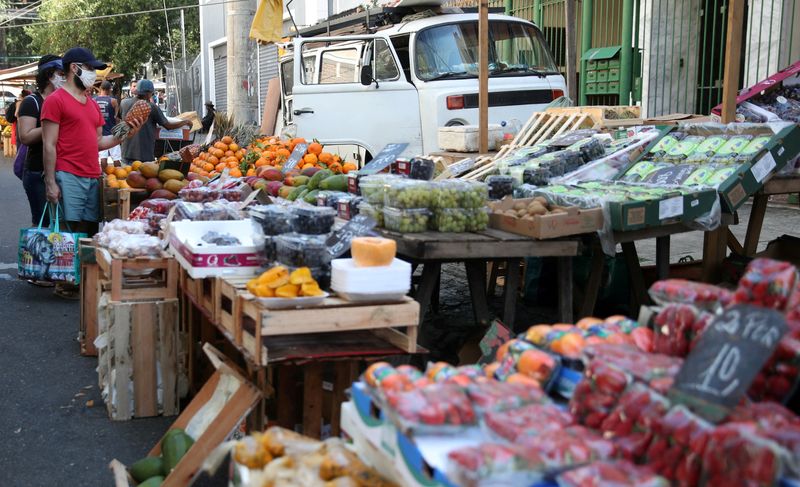BRASILIA (Reuters) – The Brazilian economy kicked off the third quarter with a stronger-than-expected pace, bolstering recent upward revisions in the country’s GDP growth forecast for 2023.
The IBC-Br economic activity index, a key predictor of gross domestic product, registered seasonally adjusted growth of 0.44% in July from June, surpassing the median forecast of a 0.3% expansion in a Reuters poll of economists.
According to the central bank, the IBC-Br was up 0.66% on a non-seasonally adjusted basis from July 2022 and marked a rise of 3.12% in the 12 months.
The data has revealed a significantly more resilient economy since the beginning of the year, and this trend has been sustained in recent months, said Rafael Perez, an economist at Suno Research.
However, Perez said he expected greater stability in economic activity by the end of this year, citing the cumulative effects of the central bank’s restrictive monetary policy.
The central bank initiated an easing cycle last month, lowering its key interest rate to 13.25% after keeping it unchanged for nearly a year to combat high inflation in South America’s largest economy. Policymakers are expected to once again reduce rates by half a percentage point on Wednesday.
Brazil’s Finance Ministry revised on Monday its 2023 GDP projection from 2.5% to 3.2% due to better-than-expected second-quarter activity, a more promising crop outlook, positive results in select economic indicators during the third quarter, and the anticipation of an economic rebound in China, a key trading partner, during the fourth quarter.
Private economists surveyed weekly by the central bank have also consistently lifted their projections, now forecasting 2.89% economic growth, compared to less than 1% at the start of 2023.
The Brazilian economy has been benefiting from the strength of the agribusiness and extractive industries this year, further supported by household demand following measures by President Luiz Inacio Lula da Silva’s government to boost families’ disposable income.
Despite the economic strength, government revenues have not grown as robustly, underscoring the challenges facing the government in balancing public finances by 2024, as promised in new fiscal rules. This task will require a significant increase in revenue collection.
(Reporting by Marcela Ayres, Editing by Louise Heavens, Steven Grattan and Paul Simao)
